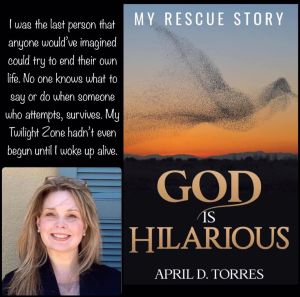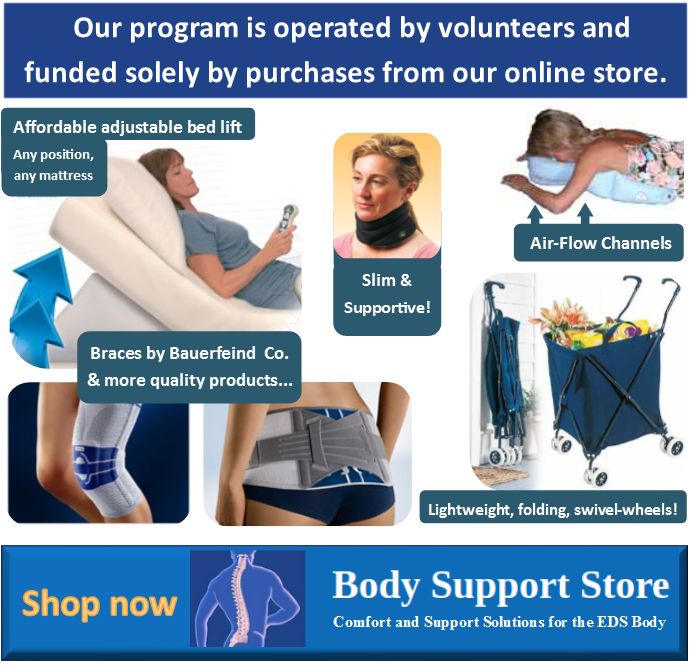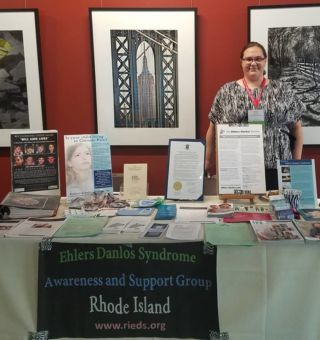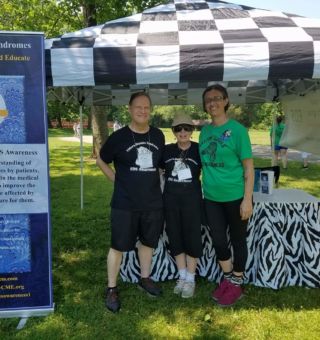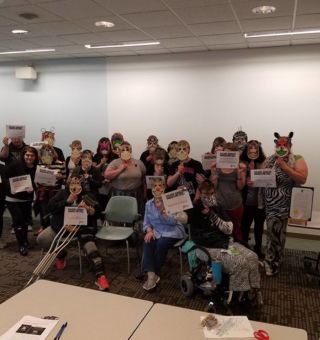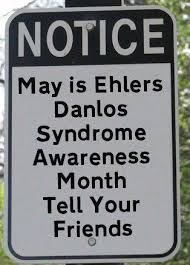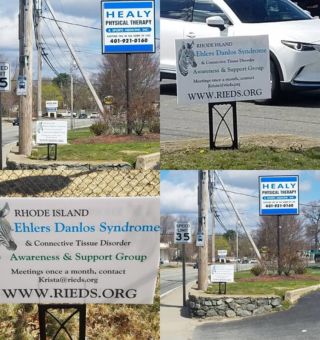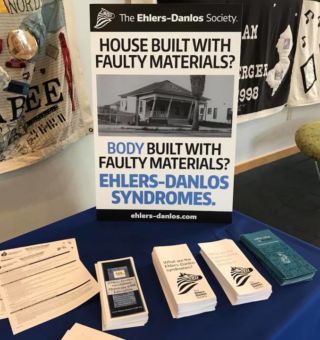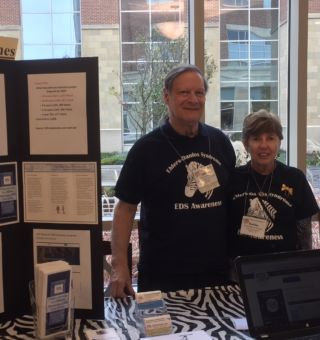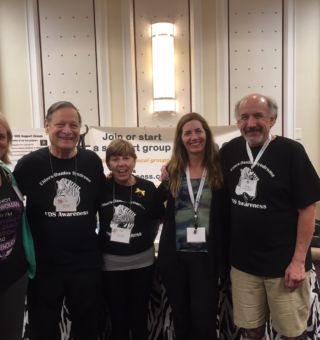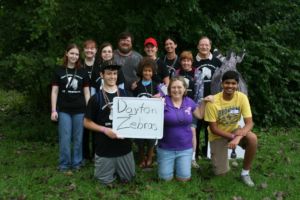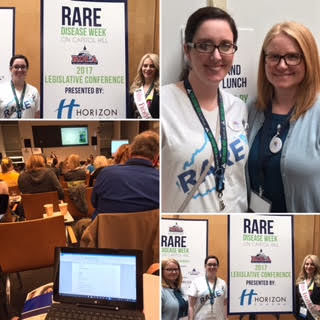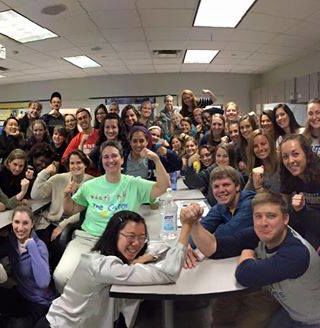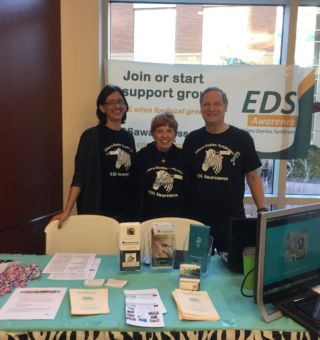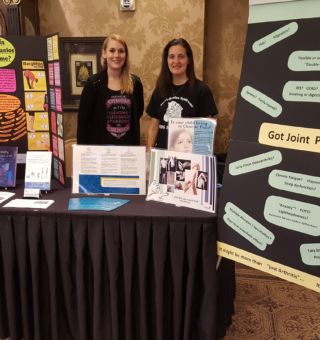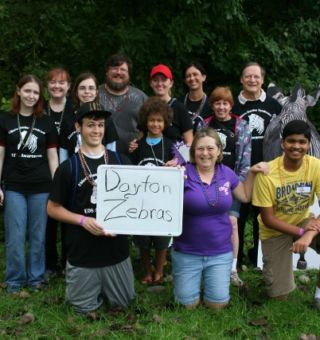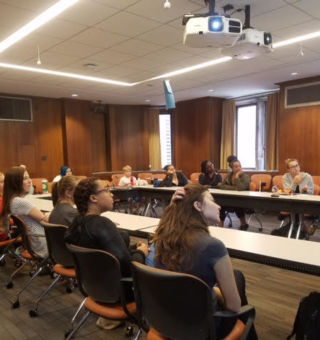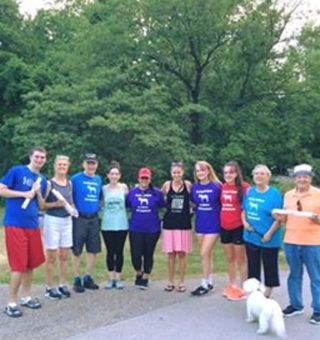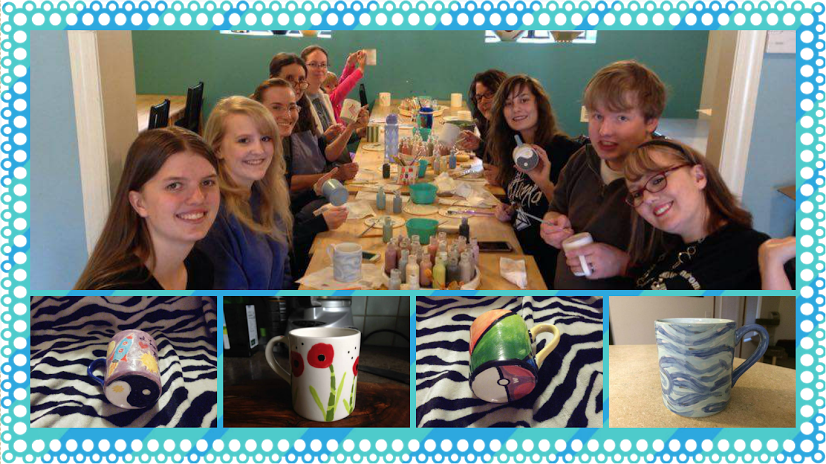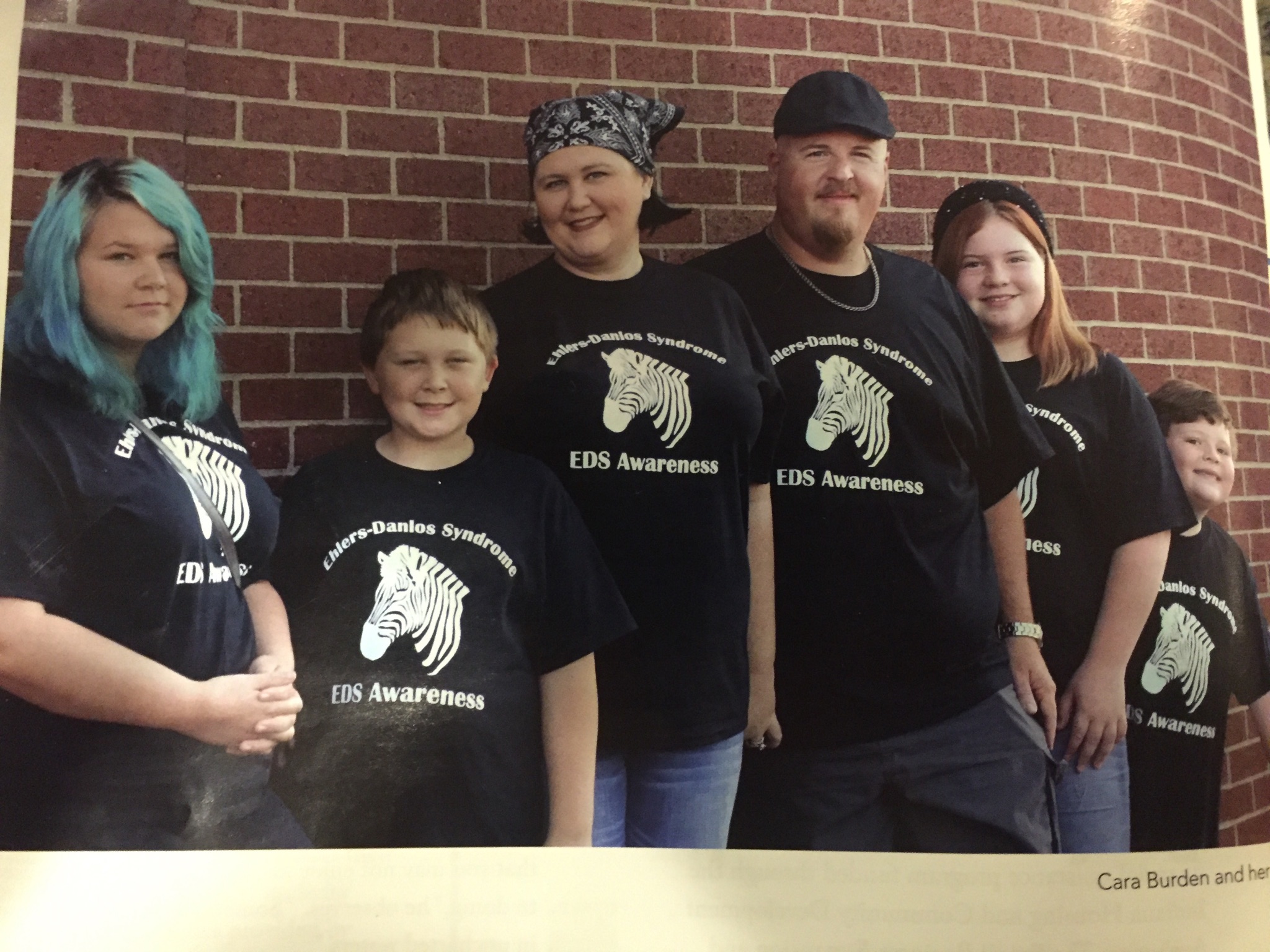April Torres on her EDS journey, the mental toll it took on her, and her book ‘God is Hilarious: My Rescue Story’
[CW: The following article discusses suicidal thoughts and ideation. This might be triggering for some people. If you or your loved one is experiencing an acute crisis, here are some phone numbers to consider in the US: The Lifeline (suicide & crisis line): 988 – The Trans Lifeline (trans peer support): 877-565-8860 – The Trevor Project (LGBTQ): 866-488-7386 – A list with international numbers can be found here.]
September is suicide prevention month, and the Chronic Pain Partners media team brought together people from the EDS community and medical professionals to share coping mechanisms to deal with chronic pain and other symptoms of EDS, as well as helpful strategies when someone may develop a crisis due to challenges related to EDS or other difficult life situations. In this part of our interview series, journalist Karina Sturm speaks with April Torres, EDS patient, book author and founder of EDS Louisiana, Inc., about her EDS journey, the mental toll it took on her, and how she found hope through God.
Karina Sturm:
Hi April, thanks so much for taking the time to talk to me today. I know you have been through a lot, and I appreciate you are putting your energy into raising awareness! Can you tell our readers a bit about yourself? When were you diagnosed with EDS, and what was your journey to diagnosis like?
April Torres:
Thank you for having me share my story! I am a wife, a mother, a nurse, a writer, a published author, and the founder of EDS Louisiana, Inc. The way I came across the term “EDS” was simply the divine providence and humor of God. My journey to diagnosis was like walking through the twilight zone. When I look back on my life, I can see so many missed opportunities where I could have learned about this condition, only my teachers, my parents, and my doctors were not familiar with it to teach us about it.
At the end of 2018, and having been an RN for 17 years, I finally stumbled upon EDS. I read everything I could find, and as I learned all about it, I began connecting the dots and seeing how it answered so many questions to everything that had always made me wonder why I was so different. In my state of Louisiana in the United States, I couldn’t find a doctor to take me seriously. My PCP actually told me, “These headaches are not going to kill you,” after suffering immensely for decades with them. I had to travel out of state to Houston, Texas, to receive my diagnoses. In March of 2019, at the age of 45, I was diagnosed with dysautonomia and hypermobile Ehlers-Danlos syndrome. Shortly after this, I was also diagnosed with mast cell activation syndrome as well, by yet another specialist in the state of Texas.
Sturm:
Wow, you have quite had a journey. I feel like most of us can relate to the gaslighting as well as the traveling out of state or even out of the country to find help. You wrote a book about your journey as well, haven’t you? Can you tell me a bit about the book?
Torres:
My book is a testament of my persistence, my fight, and my unwillingness to allow the world to see me in any way other than my own truth. I had been through so much. Never in my wildest dreams could I have ever imagined myself being locked up inside of a mental health, behavioral drug rehab treatment center. I had never in my life abused drugs or medications of any sort. All I knew was that I had found myself at a place in my life where it became very difficult to even breathe.
From an early age, I had endured massive emotional scars and lived in a body that hated me. I couldn’t keep up with my schoolmates in P. E., would pass out easily, was looked at as though I was always dramatic, somatic, and I could never understand why others wouldn’t believe me when I said I felt overheated, weak, or like I was going to faint.
Life, for me, was always difficult, but I didn’t understand that this wasn’t normal for everyone else. Everything was a struggle and a daunting task, but I continued pushing myself like I thought I was supposed to. I pushed through nursing school in my mid-twenties as a single mom, working full-time, going to college full-time, all while taking care of a preschooler.
As life pressed on, one day, it all became too much. My physical ailments, my endless migraines along with debilitating nausea, a painful wound on my scalp that would not heal, along with my emotional and mental scars became too much for me to bear. I didn’t want to die, but I simply couldn’t continue.
Sturm:
I’m so sorry to hear this, and I’m very glad you are still here today! So your book covers those most vulnerable moments of your life?
Torres:
My book covers my early years, my fears, my regrets, my shame, my never-ending pain, and my final desire and struggle to search out the end of the world and jump off. I had held on and held on and held on my whole life, clinging tightly to a rope that kept getting more and more slippery. I finally made an attempt to end my suffering. In shock, I woke up in an ICU room, hooked up to a ventilator, tubes everywhere, and discovered I had been restrained and tied down. I further learned that my nightmare hadn’t even begun yet. It hadn’t worked! I was still alive. I was being very misperceived and misunderstood by my family, the medical staff, and realized that my twilight zone was only just beginning.
Immediately following my ICU stay, I was thrown straight into a psychiatric ward, where once again, I was caught completely off guard by my naivety. I had to fight to get out of there alive. Apparently, when one is placed into such an environment against their will, they can easily lose any human rights. As unbelievable as it may sound, I suffered an NDE, a near-death-experience, while in there. As a hospice nurse, I know all of the symptoms that one goes through as imminent death is approaching. I was dehydrating quickly, lost all need to eat, and I just remember thinking, “This cannot be my legacy. I cannot die in a drug rehab psychiatric facility.” It was this fight that led me to discover that surviving wasn’t an option; it was something I simply had to do so I could help prevent others from having to endure such inhumane treatment. As a nurse, I was completely baffled at the injustice and the deeply rooted need for reformation throughout the mental healthcare system.
During this time, I had no idea that I had underlying, very serious medical conditions that were very much needing attention and treatment. I was having complications from being intubated and placed on the ventilator. How was I to know that my defective connective tissues made me extra fragile and left me prone to possible complications? None of us even knew that I had hypermobile Ehlers-Danlos syndrome or dysautonomia and that my body wasn’t able to properly regulate my own temperature. My blood pressure, which had been running very low in the ICU, was now sky-rocketed, yet none of the nurses seemed alarmed. When I asked to please recheck it, I was denied.
Throughout each day, as ironic as it sounded, I felt an unexplainable inner peace. It was as though God, Himself, was speaking into my spirit, saying, “I’ve got you.” I tried to shake it off, but it wouldn’t go away. Time after time and again, just when I thought I couldn’t possibly feel more abandoned or more alone, something extraordinary would happen. Someone kind would walk in, straight out of the left field, or something almost unearthly would happen that would make me think, “Ok, God, I believe you,” and it was as though I could feel Him within my spirit saying, “Not yet. Not yet, you don’t.” And throughout the entire pages of my book, His handprints can be seen across them all. He met me in that place in a way that felt tangible. He found a way to bring me hope when there was none. He healed the brokenness within my heart through what seemed like humor, something that was certainly not on my radar in that place. For there was nothing even slightly funny about the situation I was in. Yet, I felt Him continuously trying to embed into me, the assurance for me to know, deep down within my soul, that I was never alone. In the end, it wound up being the title of my book, “God Is Hilarious: My Rescue Story.”
I ended up turning my anger into advocacy and now spend my time advocating, educating, starting up support groups, offering hope and bringing awareness not only to suicide prevention but also to Ehlers-Danlos syndromes. We are finding that many physicians don’t seem to understand EDS, and we are discovering massive amounts of people who are struggling daily, needing to receive answers to their many questions about it all. Our goal is to try to help educate healthcare workers, as well as to get into the schools to help P. E. teachers, school nurses, and frontline office workers understand that there are children who are suffering, needing accommodations and needing to rest more. We simply want to help teach them signs and symptoms to look for to help them identify students with connective tissues disorders.
Sturm:
I am so glad you found such a unique way to cope with all you have been through and turned it into something so positive. When was your book published?
Torres:
It was published in January 2021. It took me over three years to write it, but once I started, I knew I needed to finish it in a way that would help stir others with the same righteous anger and passion to help promote the desire to bring great change to our world.
Sturm:
What was your motivation for writing it?
Torres:
There were several motivations brewing within me to complete my book. I believe the first one was to help break the stigma of the type of person that could be driven to end their life. In our society today, mental health issues are so stigmatized. I learned that if I, as a loving mother, a wife, a nurse, a compassionate person with her head on her shoulders, filled with such talent and such a deep desire to help so many people, someone who was suffering physically without answers as to what was bringing so many ailments, so many types of pain… I realized that If I could be brought to a place so low, anybody could. I realized that we, as a society, simply must bring awareness to the signs and symptoms to help prevent suicides.
My second motivation was to expose the truth of what transpires within the medical and mental healthcare systems in this day and age. I learned that not all places are the same, but I was simply baffled to see that some places are basically, and simply put, barbaric. It was brought to my attention during those grim days, by the least likely person, that I indeed was born with a powerful voice that made me realize I simply had to find a way to use it to help ignite a bright light onto the injustice taking place in order to promote change.
Thirdly, I knew that someone must awaken our world to one of the most under-recognized, painful connective tissue syndromes, Ehlers-Danlos syndromes. I began learning more about people within this population that were having thoughts of suicide. And now I can’t help but imagine the power it could have if my book were turned into a movie, how quickly the world might understand, and how quickly hundreds of thousands of people might have a chance at receiving hope, treatment, and pain management. My book is available on Amazon, but I am doing my best to create an audio version that I desire to upload for free so my story can become available in audio form to everyone, because it’s that important. The truth is, I still struggle very much with my health. I’m on supplemental oxygen and it’s very taxing on me to speak for long periods of time, so the audio version is coming along a little slower than I’d hoped.
Sturm:
I know you have struggled with depression for a while. Can you tell our readers how the depression developed?
Torres:
For as long as I can remember, as a child, as a teenager, I always felt a deep, inner sadness that I didn’t know how to describe. I never felt good enough. I never felt loved enough. I felt it had to be earned, and I didn’t know what to do to earn it. It sucked the life out of me. As years passed by and I married, the void felt deeper and deeper. There was an inner longing that I knew would never be filled. In the pit of my gut, I knew there was no escaping it. No one understood my mental anguish.
Sturm:
We have already spoken about the hard times you experienced, which you are sharing in detail in your book. But tell me a bit about where you are today in terms of your mental health.
Torres:
Today, I can wholeheartedly say that my mental health has never been better in all of my life. People ask me all the time, almost hesitating, “How are you doing?” My answer is always the same, “I’m good. I’m really, really good. This ol’ body of mine, however, is a whole other story.” If it had not been for the experience I felt, of the tangible presence of God, that I encountered back in that inhumane facility, I truly don’t believe I’d still be here today. But His persistence, His consistency, and His gentle and loving humor certainly got my attention, to the point where no matter what still may come, until my final day, I am assured with the deepest certainty that, indeed, I never walk alone. This has given me a peace I never knew existed. I had been struggling since my childhood, and the creator of the universe reached down and healed me during the darkest hours of my life. I have truly been made whole; something I never could have seen coming my whole life long.
Sturm:
Today, you are supporting many other people with EDS. How are you doing this? Tell me a bit more about EDS Louisiana.
Torres:
EDS Louisiana, Inc. is still in the process of creating many different outreaches that I’m a part of in many ways. My favorite of all is our Zebras Outreach program. There are many, many online EDS support groups. On any given day, you can find posts with multiple cries for help. They “can’t do it anymore,” “None of my family or friends believe that I’m even sick,” “Doctors think I’m drug-seeking, but I’m truly suffering.” The list goes on and on. I’ve been trying to train our volunteers that there are things that we can do when we see these posts. We can reach out to the person, letting them know they aren’t alone, and that they are seen and heard by so many of us. If they send us a mailing address, we will send them a special care package. In the care packages, we do our best to include something very specific to the person along with a hand-written card, once again reminding them that they are not alone. For true cries of help, we are very adamant about mailing them out right away. We include EDS brochures and are creating cards to also include that will include the national suicide helpline. We do not do this for the thanks, but the responses we receive from those who receive these are genuinely priceless. So during any day that may seem tough for me, I know I have a greater purpose and that there are so many others needing our help. This helps keep things in proper perspective for me.
Sturm:
What good advice do you have for others to cope with all the challenges that come along when one lives with EDS?
Torres:
I always strongly encourage others to find a local support group if there’s one near them. If there’s not, we welcome them to become a part of ours or help them locate a group geographically closer to them. There’s power in numbers, and there’s power in hearing others’ stories and seeing that you truly aren’t alone. Making friendships with others who understand what you go through can serve as great support. We learn so much from one another. We also encourage others to start their own groups. One by one, there is a chance for change. There is hope for those with EDS, and there are ways to manage all of the ongoing symptoms. It may take a lot of time, but it’s definitely worth working towards. We often share the saying, “It only takes one candle to light many,” and we’ve found it to be proven true!
Sturm:
Thanks so much for sharing all of this with me today, April! I appreciate all you do.
Torres:
Thanks, Karina! We certainly appreciate all that you do as well!
Karina Sturm
September 2022


